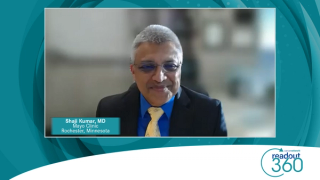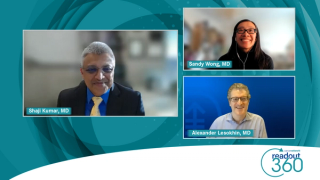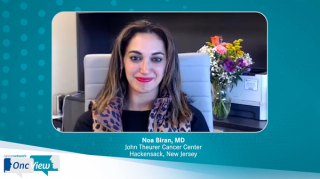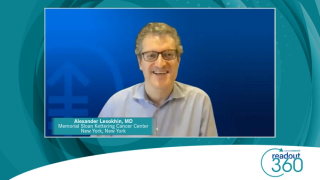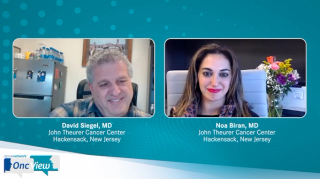
Multiple Myeloma
Latest News
The rational development of novel targeted therapies is expanding treatment options for patients with relapsed/refractory (R/R) multiple myeloma (MM). The first-in-class proteasome inhibitor (PI) bortezomib (Velcade), the immunomodulatory agents thalidomide (Thalomid) and lenalidomide (Revlimid), and liposomal doxorubicin are currently the major approved therapeutic agents in this setting.[1]
Latest Videos

CME Content
More News
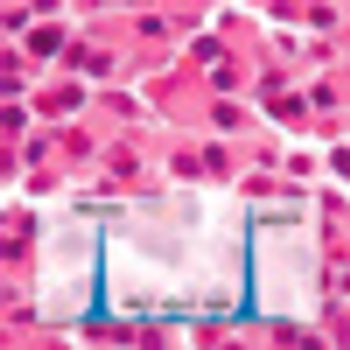
The availability of a wide variety of treatments for multiple myeloma allows healthcare providers to tailor treatments to individual patient needs, and has enabled prolonged survival of patients with the disease.

Multiple myeloma (myeloma) is a highly treatable disease, but it remains incurable in the majority of cases. It is a heterogeneous disease with variability in its clinical presentation, treatment options, and prognosis.

Experimental drugs from ImmunoGen, Seattle Genetics, and S*BIO advance therapeutic options in multiple myeloma, anaplastic large-cell lymphoma, and relapsed lymphoma.

Clinical outcomes data for all of oncology include those from trial after trial demonstrating poor outcomes in older patients with cancer. Whether these are the result of limited biologic reserve, poor performance status, or inherently worse biological disease at the time of diagnosis, such age-based disparities have continued unabated for decades. However, for the first time, older patients with multiple myeloma (MM) are starting to enjoy the kinds of remission durations and overall survival (OS) seen in younger patients. In this review by Dr. Harousseau, we see that through the use of regimens such as MPV (melphalan and prednisone plus bortezomib), MPT (melphalan and prednisone plus thalidomide), MPR (melphalan and prednisone plus lenalidomide), VMPT (bortezomib, melphalan, prednisone, and thalidomide), and Rd (lenalidomide and low-dose dexamethasone), we can begin to provide older patients with MM with a median OS approaching the 4- to 5-year mark-a far cry from the median OS of 2.5 to 3 years seen with MP just 15 years ago. So what are the remaining hurdles and challenges to be addressed in the upcoming 10 years?

Until recently, standard treatment of multiple myeloma (MM) in elderly patients who were not candidates for autologous stem cell transplantation was with the combination of melphalan plus prednisone (MP). Novel agents (thalidomide, lenalidomide, bortezomib) are dramatically changing frontline therapy of MM. Randomized studies have shown the superiority of adding one novel agent to MP, either thalidomide (MPT) or bortezomib (MPV). The combination of lenalidomide with low doses of dexamethasone is another attractive alternative. Recent results show that maintenance therapy with low-dose lenalidomide may prolong progression-free survival. The objective of these improved treatment regimens should be to achieve complete response, as in younger patients. However, toxicity is a significant concern, and doses of thalidomide and of myelotoxic agents should be reduced in patients who are older than 75 years or who have poor performance status. Weekly bortezomib appears to induce severe peripheral neuropathy less frequently than the same agent administered twice weekly. Autologous stem cell transplantation is feasible in selected fit patients over 65 years of age, and its results are improved by the addition of novel agents before and after high-dose therapy. However, considering the progress in non-intensive therapy, autologous transplantation should not currently be offered to elderly patients outside of a clinical trial.

The variety of treatment options available to patients of all ages who have multiple myeloma has improved considerably in the past decade. However, elderly patients have benefited more than patients of other ages. Because elderly patients, as a group, are usually not offered autologous stem cell transplant (ASCT) as a treatment option, they have been unable to benefit from the wide application of this technique, first introduced in the late 1980s. In the past 8 years, however, thalidomide, bortezomib, and very recently lenalidomide, when combined with conventional doses of alkylators and corticosteroids, have produced marked improvements in progression-free survival (PFS) and overall survival (OS) in elderly patients. Harousseau has thoroughly reviewed the important studies documenting these benefits for this population.

Takeda announced that the FDA has agreed to consider an expedited review of the company’s request to update its label for bortezomib (Velcade) to include long-term survival data in patients with previously untreated multiple myeloma.

The FDA has accepted an Investigational New Drug (IND) application from CyDex Pharmaceuticals for a clinical study of Captisol-enabled melphalan HCL (CDX-353).

People who apply certain pesticides double their chance of developing multiple myeloma, compared with individuals in the general population.

Final results of PX-171-003-A0, part 1 of an open-label, single-arm, phase II study of carfilzomib in patients with relapsed and refractory multiple myeloma

Genzyme has won a nod from the FDA to market Mozobil (plerixafor) in the U.S. The drug is intended to be used in combination with granulocyte-colony stimulating factor to mobilize hematopoietic stem cells to the bloodstream for collection and subsequent autologous transplantation in patients with non-Hodgkin’s lymphoma and multiple myeloma. The product has also been granted orphan drug designation by the FDA.

Australian researchers reported that multiple myeloma patients who expressed cyclin DI were more likely to achieve a response to treatment with bortezomib (Velcade). Mark A. Dawson, MD, Andrew Spenser, MD, and colleagues aimed to identify the patients who would fare best with bortezomib salvage therapy.

The National Institute for Health and Clinical Excellence rejected lenalidomide (Revlimid) in combination with dexamethasone for treating multiple myeloma patients who have already received at least one prior therapy.

FDA has approved Millennium and Takeda’s Velcade (bortezomib) for previously untreated multiple myeloma.

Patients with multiple myeloma are more likely to mobilize sufficient numbers of hematopoietic stem cells (HSCs) when plerixafor (AMD3100) is given with G-CSF (Neupogen) than with G-CSF alone.

As a young boy, Vincent DeVita dissected frogs on the front steps of his parents' house in Yonkers. In the eyes of his encouraging mother, he was already a budding physician fascinated by the internal complications of life.

While reduced-intensity conditioning allows hematopoietic stem cell transplant (HSCT) in older cancer patients who cannot tolerate standard conditioning regimens, only about one-third of such patients have an HLA-matched related donor available. For these patients, stem cells derived from unrelated umbilical cord blood (UCB) may provide a suitable and convenient alternative

;In patients with newly diagnosed multiple myeloma, the addition of bortezomib (Velcade) to thalidomide (Thalomid) and dexamethasone significantly increased response rates, compared with thalidomide plus dexamethasone alone, when used as induction therapy prior to autologous stem cell transplant (ASCT

In newly diagnosed multiple myeloma patients, lenalidomide (Revlimid) plus low-dose dexamethasone led to superior overall survival, compared with the standard regimen of lenalidomide plus high-dose dexamethasone

Use of intensive immunochemotherapy plus purged stem-cell support can result in long-term survival in patients with mantle cell lymphoma, suggesting that MCL could be considered as curable. Christian Geisler, MD, PhD, of Rigshospitalet, Copenhagen, Denmark, presented this provocative idea, based on final results of the MCL2 study, at ASH 2007 (abstract LB1), speaking on behalf of the Nordic Lymphoma Group.

Kosan Biosciences Incorporated has announced that the Tanespimycin in Myeloma Evaluation (TIME-1) pivotal phase III trial for its Hsp90 inhibitor tanespimycin as a potential treatment for multiple myeloma is open for enrollment

Sunesis and MMRC collaborate to study SNS-032 in myeloma

FDA has granted approval for use of Millennium Pharmaceuticals' Velcade (bortezomib) in myeloma patients with impaired kidney function without dose adjustments. The expanded label approval includes patients requiring dialysis.

Interim results of the large international phase III VISTA trial in patients with newly diagnosed multiple myeloma showed a significant improvement in all efficacy measures for bortezomib (Velcade), melphalan, and prednisone vs melphalan/prednisone.

Millennium Pharmaceuticals, Inc, announced that the interim analysis results of the large, international phase III VISTA trial in patients with newly diagnosed multiple myeloma showed that VMP therapy (bortezomib [Velcade], melphalan [Alkeran], and prednisone) demonstrated a highly statistically significant improvement in all efficacy measures, including time-to-disease progression, complete remission rate, progression-free survival, and overall survival, compared to MP (melphalan and prednisone) alone.

